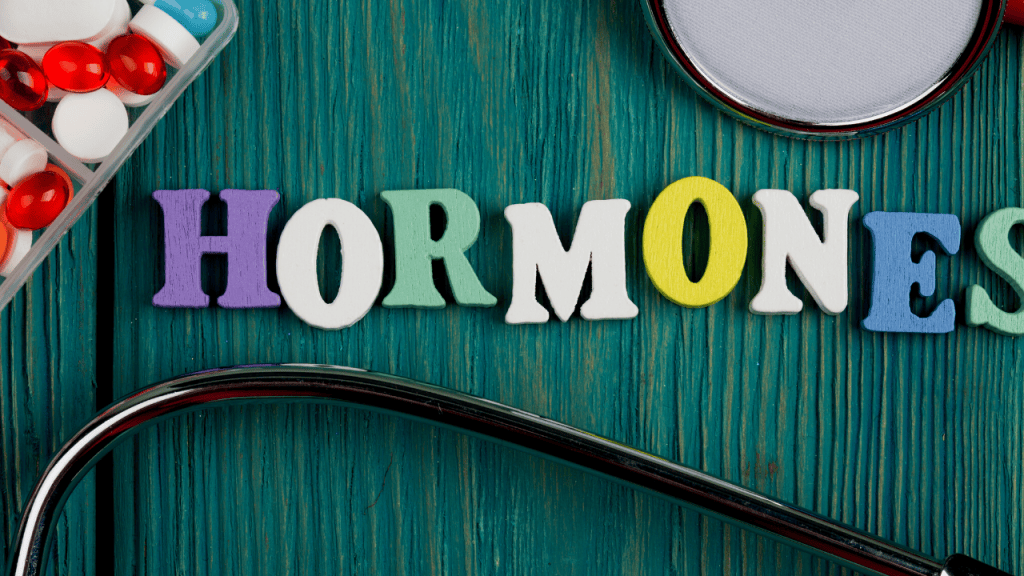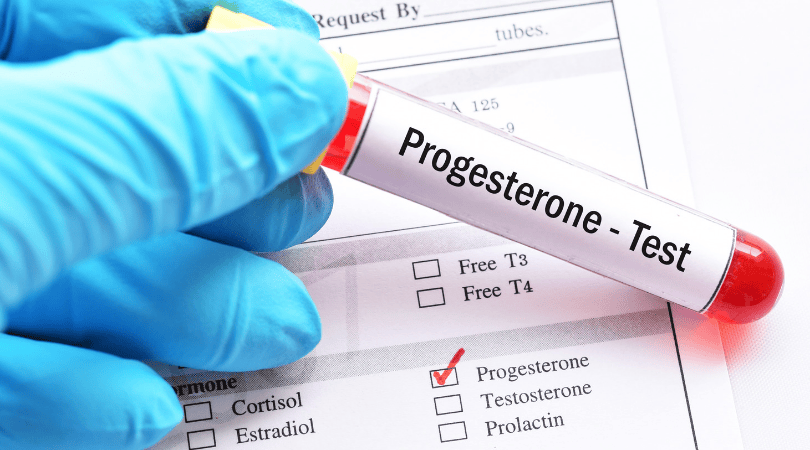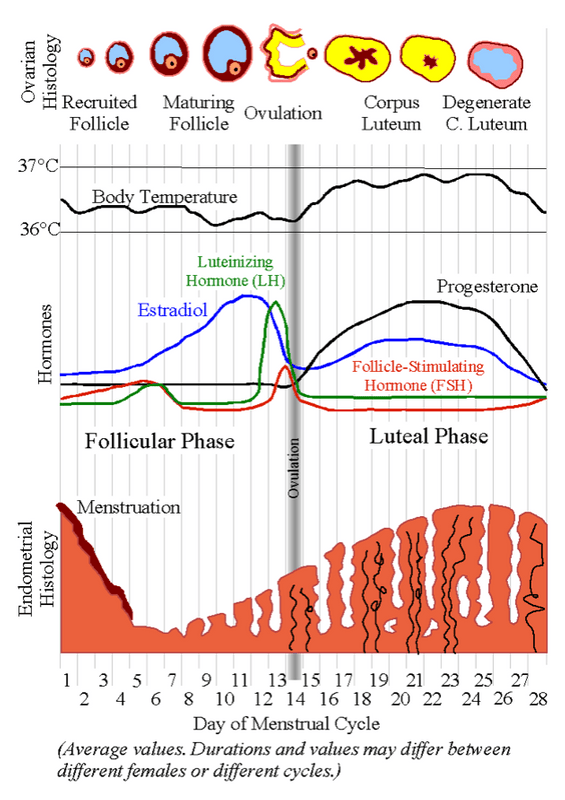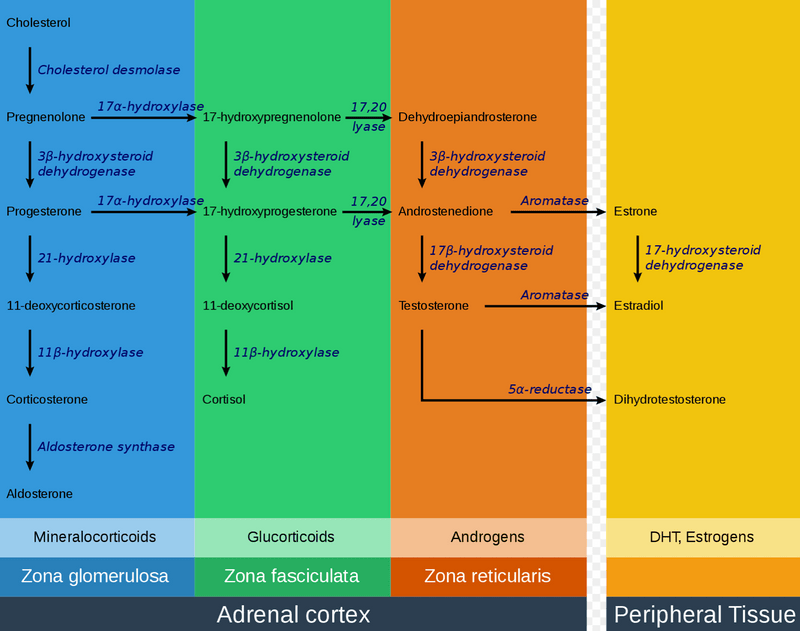By Dr. Sarah Bennett, NMD / July 22, 2019

Hormones are responsible for regulating most functions of the body. Regardless of where you currently are in life, hormones play a big role in how you feel daily.
If these hormones are not balanced or produced at the appropriate times inevitably unwanted symptoms such as anxiety, insomnia, weight gain, irregular menstrual cycle, and more will start to present.
At this time people often reach for sleeping pills, anti- anxiety medication, or birth control pills. Often with mild if any success.
What they do not realize is that Bio-Identical Hormone Replacement Therapy (bHRT) may be all they need to address the cause and lead a more fulfilling, energized life, including in places like Phoenix, Arizona!

Hormone Replacement therapy (HRT) is use of exogenous hormones to help balance sex hormones such as testosterone, estrogen, and progesterone in order to treat underlying conditions and resolve unwanted symptoms.
Hormones are responsible for regulation of most functions in our body, including but not limited to:
This is why hormone levels are extremely important for everyone, whether you are an adolescent going through puberty or you’re an adult approaching menopause. Hormones are there with us every step of the way.
When they are out of balance general quality of life will diminish. This is often when people say things like ” I’m just getting old.” or “I can’t wait until menopause and I don’t have to worry about these darn periods.”
The main idea behind HRT, whether you are looking into bio-identical or synthetic hormones, is to help correct excess or deficiency of sex hormones that can be causing unwanted symptoms in your day-to-day life.
In addition to resolving unwanted symptoms, HRT has also been known to help on a preventative level. Testosterone replacement therapy can decrease the risk of diabetes, Alzheimers, erectile dysfunction, cardiovascular disease, obesity and high cholesterol while balancing women’s progesterone to estradiol and estrogen ratio can decrease the risk of breast cancer, stroke, cardiovascular disease, anxiety and insomnia.
Ultimately, HRT is a wonderful natural way to help you Live Your Best Life.
While HRT is a fantastic natural treatment that helps many individuals, it’s always important to know whether you are a good candidate before seriously looking into a new medical option.
Most commonly, Hormone replacement therapy is prescribed to men and women 30 years of age and older, although it is often used for all stages of adult life.
Around the age of 30 our sex hormone production begin to decline, putting us into a state of hibernation. And around this time all of those unwanted symptoms I listed before begin to develop.
If you look at this from an evolutionary standpoint it makes sense. For the survival of our species, our primary task in life is to reproduce, and then get out of the way ( or die ). So naturally this decline in hormones happens just after our fertile peak.
Also, not so long ago humans lived in tribes. This decline in hormones benefited the survival of the tribe, aiding in proper allocation of resources ( mainly calories ) to the young and fertile.
Now-a-days we are living longer, just since 1960 the average human life span has increased by 9 years. We are also working ( and playing ) longer into our twilight years.
This means we need that vitality long after our hormones begin to dip.
You should also be cautious if you have or have had:
Always be safe. Be sure to discuss any concerns with your naturopathic doctor or endocrinologist so that you can make the most informed decision based on your unique circumstances.

As mentioned, the fact that hormones cover so many different functions in our bodies also means that HRT can address a range of different concerns and conditions.
A few of the Symptoms that can be helped by HRT include:
Additionally, some of the specific conditions that can be relieved by HRT include:
All of this depends on the specific hormonal concerns of an individual patient since sex hormones will impact different parts of your body more than stress hormones, for instance.
To get more specific, sex hormones in particular can impact many different things (not just reproductive functions) and can very easily experience imbalance, especially with age.
Most of you have heard of sex hormones in reference to menopause, body building, PMS and sex drive, but this is just a minimal part of how sex hormones influence our daily life.
Hormone levels generally begin to decline around the age of 30, leading to many unwanted symptoms. This decline can be attributed to modern standard lifestyle and diet, particularly in America. Additionally, the fact that we are living longer and evolution has not quite caught up plays a significant role.
This decline in hormones puts us into a sort of hibernation state where we need fewer calories for our daily functions. Long ago, this would have been extremely beneficial and led to elderly members in a tribe or group needing fewer resources, but this lifestyle is outdated.
As everyone may know, female anatomy (especially in terms of reproduction) is fairly complicated. This is due to the menstrual cycle which causes a natural ebb and flow of female sex hormones.
There are 2 primary female sex hormones – estrogen and progesterone. The production of these hormones fluctuates throughout the menstrual cycle, as seen in the diagram below.
At day one of the menstrual cycle, or the first day of the period, the hormones are the lowest. Estrogen will then start to rise throughout the first half of the cycle called the follicular phase. This starts to build the lining of the uterus.
Around day 14 estrogen spikes stimulating ovulation, which will then fall and rise back up waiting for the signal you are pregnant during the second half of the cycle called the luteal phase.
Progesterone lays low throughout the follicular and ovulation phases and then will rise up to meet estrogen in the luteal phase. If your body does not receive the signal you are pregnant these hormones will fall stimulating your next menstrual cycle.
This cycle is a hormonal balancing act that will frequently become out of balance causing those unwanted symptoms of PMS, weight gain, anxiety, difficulty sleeping, and more.
The Female Menstrual Cycle

Estrogen is the primary female sex hormone. It helps to develop the female sexual characteristics and helps build the endometrial layer of the uterus during the follicular phase (first half) of the menstrual cycle.
Women have 3 forms of estrogen in the body. These estrogens each have a different function and must be balanced to achieve optimal health.
Estriol, or E3, is the gestational estrogen. Estriol is released during pregnancy, so levels are normally undetectable and it is mostly important during this specific point in a woman’s life.
Estradiol, or E2, is the primary form of estrogen. At the appropriate levels, it protects us against bone loss, heart disease, hot flashes, collagen loss and more.
Estrone, or E1, is the “bad” form of estrogen. This is a metabolite of Estradiol and is often elevated in obsese individuals and patients with poor liver for function. It is a common result of standard American diets. This “bad” estrogen increases risk of blood clots and cancer when out of balance!
Estrogen Excess (also known as Estrogen dominance) is becoming increasingly more common. Estrogen dominance is frequently seen in ovulating women, causing many unwanted symptoms such as PMS, heavy menses, weight gain, breast tenderness, mood swings and more.
Estrogen deficiency, however, occurs during menopause and causes the majority of associated symptoms, including the dreaded hot flashes. Estrogen deficiency can also cause vaginal dryness, weight gain, low mood, brain fog and more. It also increases the risk of osteoporosis, cardiovascular complications, hyperlipidemia and tendon/ligament injury.
Progesterone’s primary function is to build the endometrial lining of the uterus in the luteal phase (second half) or the menstrual cycle and to support pregnancy. Many physicians fail to see any benefit of progesterone outside of this function.
Proper progesterone levels also improve sleep, daily energy, anxiety levels and menstrual regularity.
Additionally, progesterone helps to balance estrogen levels to prevent estrogen dominance. Optimal levels of progesterone should be greater than/equal to estradiol to promote good health and even decrease the risk of cancer.
In the case of HRT, estradiol should never be taken without progesterone to balance it’s levels!
Progesterone excess is nearly only seen in pregnancy, in which case it is physiologically appropriate. Excess of progesterone may cause daytime drowsiness, water retention and low mood.
Progesterone deficiency, however, is commonly seen in women of all ages. As seen in the diagram below, progesterone can be converted into cortisol (our stress hormone). Our modern lifestyle is full of little daily stresses (traffic, deadlines, family life, etc.). Each of these stressors stimulates the release of cortisol, which begins to pull from our progesterone.
This is called the progesterone steal. Our body will continue to pull from our progesterone to create more cortisol and maintain the proper amount (it’s more important to deal with stresses like, say, running from a tiger than to be prepared for pregnancy).
Also, during times of high or chronic stress our hormone production consequently will drop.
This is the reason why a woman’s menstrual cycle may come late during stressful months or why we may experience more fatigue, sleep distrubance, anxiety, PMS and more.
Sex Hormone Pathway

The final important sex hormone to discuss is testosterone. Many people think of teenage boys with acne and high libido or body builders when they think of testosterone, but what people don’t realize is that women need it as well.
Testosterone not only helps to build muscle mass and improves libido, but also to improve cognition, energy, mood, assertiveness, performance, insulin sensitivity, anxiety management and even pain.
Excess testosterone levels are often seen in women with PCOS (polycystic ovarian syndrome) which is becoming increasingly prevalent. Excess testosterone in women leads to acne, increased facial and body hair, deep voice, clotoral enlargement, estrogen dominance, hair loss and more.
On the other hand, testosterone deficiency is just as prevalent and is often left untreated, especially for women. Lab reference ranges will often indicate that the lower limit of testosterone for women is 0.1 or even 0.0. When it comes to men reference ranges differ from lab to lab but reports that lower and lower levels are now considered healthy.
This is something I find outrageous due to not only the unwanted symptoms seen in testosterone deficiency but also the increased risk of developing erectile disfunction, cardiovascular disease, diabetes and dementia.
Hormonal replacement therapy comes in two main types bio-identical hormones and synthetic hormones.
Bio-identical hormones are molecularly identical to the hormones naturally produced in your body and have been shown to have a much lower risk profile than synthetic hormones. This is why many naturopathic practices and med spas are going this route lately.
Synthetic hormones, such as conjugated equine estrogens (CEE) and medroxyprogesterone (MPA) have been shown to have a higher risk for health concerns like breast cancer and cardiovascular disease.
Hormones may be prescribed in a variety of different forms: capsules, troches, injections, pellets, creams. So which one is best?
First what you should know is that health risks vary based on route of administration for HRT. Testosterone taken orally may increase risk of developing liver cancer and therefore should not be prescribed. In addition, topical testosterones will also increase DHT, which often leads to an increase in adverse effects such as acne, hair loss, facial hair growth, oily skin, and stimulation of prostate growth. Estrogens taken orally and topically have been shown to increase estrone resulting in higher risk of blood clots.
Injection and pellets are the most direct, pure way of administering both estrogen and testosterone. Also, injections do not rely on absorption through a skin or mucosal barrier. Plus, they have the fewest adverse effects and lowest risk.
As with any other treatment or procedure, HRT can come with some side effects. They are primarily seen when hormone levels are too high or out of balance, but can also be a natural response to hormones in the body.
For example, testosterone will naturally stimulates the production of red blood cells, in both men and women. Certain people have a greater response in the way to testosterone replacement.
A greater production of red blood cells can make the blood thick and sticky, more difficult for the heart to pump, and at a higher risk of blood clot or cardiovascular complications if not corrected. Therefore, it is important that the managing physician always checks the levels of RBC, Hemoglobin, and Hematocrit at each hormone check.
If red blood cell production is increased while on testosterone therapy, it is easily corrected by a simple donation of blood 1+ times per year, or decreasing dose.
Also, testosterone will naturally aromatize into estrogen in the body, so it is important to always check estrogen levels in both men and women when providing testosterone replacement therapy.
There are two types of estrogen that are important to watch: estradiol and estrone. It is important that estradiol is at a healthy level for both men and women since it is protective for the heart, bones, vaginal lubrication, collagen production and erectile function. If estradiol is too high, Anastrazole may be taken to help suppress the conversion.
Estrone is a metabolite of estradiol that should be kept at equal or lesser levels when compared to estradiol. It is often elevated due to poor liver function and can be a result of obesity or estrogenic dietary influences like beer, soy, insecticides and heating food in plastics. Daily supplementation of Diindolylmethane (DIM), dietary changes and weight loss can help decrease levels of estrone.
Generally, men tolerate bHRT well without development of negative symptoms.
Women tolerate bHRT well, although finding the right balance can be a little more complicated. Ovulating women will often present with estrogen dominance that causes irregular menstrual cycles, PMS symptoms, mood swings, breast tenderness and weight gain. Progesterone can help balance hormones and treat these symptoms, but too high of a dose can cause daytime drowsiness and breast tenderness.

Of course, having a conversation or consultation with your doctor is absolutely vital for something as personal and individualized as HRT. Knowing the right questions to ask will make this conversation far more productive!
Always ask what lab values the physician will monitor over time and how frequently. For example, it is important to monitor free and total testosterone, red blood cells, hemoglobin, hematocrit, estradiol and estrone every 6 months in testosterone replacement therapy. It is also critical to monitor progesterone-to-estradiol ratios in women.
Other questions you should ask include:
As mentioned, everyone is different and will have different experiences with HRT, so make sure you don’t rush into anything and are speaking to a responsible, patient and experienced doctor!
Hormone Replacement Therapy can truly be life changing, helping to resolve pesky symptoms at the root cause.
By understanding the basics of HRT, the details of important hormones like sex and stress hormones, knowing the side effects and having prepared questions for your doctor, you are ready to look into what HRT can do for you!
When thinking about HRT, you should specifically be sure to talk to your doctor about your levels regarding sex hormones since they are connected to so many different functions. Even though hormones like cortisol and insulin are also critical, sex hormones are responsible for a vast majority of the changes our bodies naturally go through as we age and develop.
Remember that it isn’t the solution for everybody and that a thorough, honest conversation with your doctor is necessary! Hopefully, HRT can help you to Live Your Best Life.
For more in-depth information, be sure to get my free e-book! What concerns are you hoping to solve with HRT?
Top Hormone Therapy in Arizona: